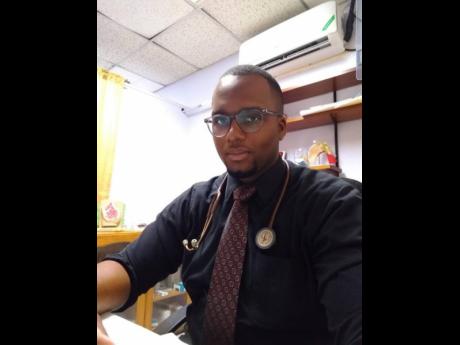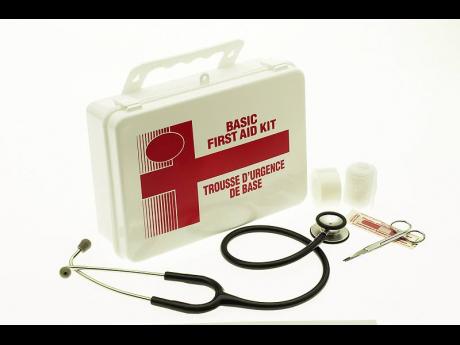Hurricane prep medical checklist
Jamaica faces an imminent threat from Hurricane Beryl, one of the first major disasters of the season. The climate crisis has already left supermarket shelves empty, with many gearing up for what is being categorised as an intense landfall. Among the top priorities to address are matters of health and safety. According to Dr Lorenzo Crumbie, having a first aid kit is crucial as you prepare for the impending blow.
“Usually for hurricane preparedness, you want your first aid kit to have things that aren’t readily accessible from stores due to closure,” he told Lifestyle. Among the emergency kit checklist are pain medications such as Panadol or Cetamol as well as antihistamines or allergy meds.
Medication for nausea and vomiting, he says, are also important. “Unfortunately, in our setting, those medications aren’t necessarily available over the counter. But we are concerned about contaminated water sources [if] you didn’t store your water properly [and] risks of having gastroenteritis.”
He further explained that individuals with known chronic illnesses should ensure they have their medications in stock. “We hope things are not so severe that you will need more than a month’s worth of medication. But at least have supplies that will carry you for a month. So, for persons with high blood pressure, they should have their pressure meds. And those with high blood sugar should have their sugar meds.”
With the possibility of water leaving the pipes, Dr Crumbie strongly recommends treating stored water before consumption. “You can make your water potent by boiling it. Heat kills a lot of bacteria in barrels that commonly contaminate your water supply. And, bleach typically takes care of the rest that might not have been taken care of, due to heat labile, those molecules that can tolerate high temperatures,” he said. For purifying purposes, it is advised to add two drops of bleach to a quart or litre of water.
Hurricane Beryl has already passed through other Caribbean islands with high gusts of winds. If it arrives in similar fashion to the island and you are faced with cuts from shattered objects such as a glass. The good doc revealed that it is best to stop the bleeding and head to the nearest emergency care for treatment.
“You want to assess the wound, first and foremost. If it is deep and gaping, then don’t try to manage it yourself. Apply compression, putting on a tourniquet or wrapping the wound very tight, so that you can compress it to control the bleeding and make your way to the nearest emergency room. Those are usually open 24 hours and they can take care of the serious situations for you.”
For superficial wounds, clean the area initially with peroxide and cover it with a band-aid to keep it dry. If you haven’t received a tetanus shot in the last 10 years, it’s recommended to visit your doctor as soon as possible to get the necessary help. It’s important to know how to assess your loved ones, especially those with serious illnesses. Noticing a difference in breathing pattern, taking blood pressure and sugar test are also vital steps that can save a life.
“Individuals with diabetes should be wary of getting cuts and bruises because they are at increased risk of getting the wound infected due to their underlying disease. If they are hurt or injured, they should have some topical antibiotic ointment to use until they can get to a doctor to address their wound.”
In cases of emergencies, move as quickly as you can to the nearest hospital. But please note that these hospitals will be swamped during the time period, dealing with matters that are emergent. So, if injuries aren’t life-threatening and can be assessed and handled at home, then people should wait there, rather than weather the storm for treatment.
For women who are in their last trimester of pregnancy, Dr Crumbie advises that they relocate to places that are nearer to their hospitals. If they have relatives or friends who reside in close proximity, it would be best to stay with them, in case of a labour emergency.
“Asthmatics should also be on guard because we tend to see a spike in wheezing or exacerbation of asthma because of the severe changes in climate and weather. They would be vulnerable if they were to have an attack and they are not nearby somewhere that is safe.”
Post-hurricane care can be tricky, since many jump at the opportunity to assess the damages. “We recommend that you be cautious around large bodies of stagnant water and hilly areas that have a history of landslides. Stay away from down electrical wires and if you have exhausted your water supply, get familiar with the treatment methods,” Dr Crumbie added.


